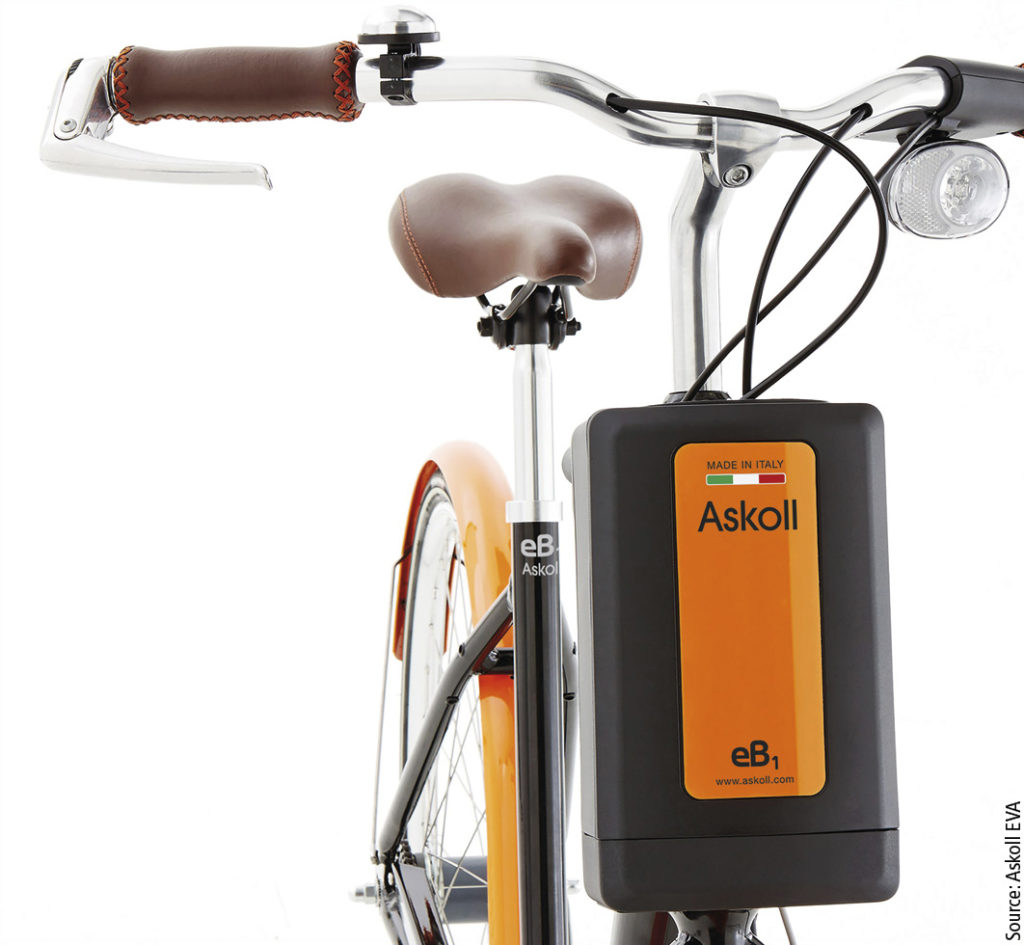Askoll is one of Italy’s leading manufacturers of electric two-wheelers. The company has specified the use of Thermolast K from Kraiburg TPE for two precision gasketing applications on the new battery boxes of a growing range of power-assisted bikes and electro-scooters. The company based in Dueville near Vicenza is using the TPE material for an anti-rattle overmoulding of the battery connector and for water-tight sealing of the battery box. Key requirements to be met included a direct adhesion to glass-filled PBT on small contact surfaces.

Electric vehicles need innovative materials that support their pleasantly silent travel by eliminating undesired ambient noises and – in the case of external components such as battery boxes on two-wheelers – ensure a weatherable and water-tight enclosure. This is opening attractive new application opportunities for thermoplastic elastomers. Both TPE applications – the anti-rattle cover of the battery connector and the sealing of the battery – are injection moulded in a two-component process, which required good direct adhesion to the glass-filled PBT resin used for the battery box.
Good flowability was needed to ensure a precise, tight and faultless fit of the gasket on the narrow contact surface of the lower box component. In addition, the compound lends the critical long-life mechanical properties required to withstand the shocks and vibration of the box when driving, as well as the wear and tear during frequent removal for charging the maintenance-free battery on the electric grid at home or at work. The compounder has also expanded its product offerings for the production of soft-touch decorated surfaces with low-emission, low-odour, and UV-resistant compounds that are easy to process.
The company said that the compounds of the new FG/SF Thermolast K series comply with all established automotive standards set by OEMs with regard to the emission and odour behaviour of components for vehicle cabins including DIN 75201-B (G) and VDA 278 on fogging and VOC (volatile organic compounds) as well as VDA 270 Var. 3 (odour behaviour dependent on temperature and climatic influences). In addition, the compounds provide permanent UV stability, which is confirmed by comprehensive independent tests in accordance with DIN EN ISO 105-B06. Hardness grades ranging between 50 and 80 Shore A are available. They offer very good adhesion to PP in two-component applications and provide an attractive satin-finished surface with a pleasant soft-touch feel and permanent abrasion resistance.
